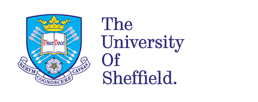
Anthony O'Hagan
School of Mathematics and Statistics, University of Sheffield, UK.
Publication details: To appear in The American Statistician, 2018.
Expert opinion and judgement enter into the practice of statistical inference and decision-making in numerous ways. Indeed, there is essentially no aspect of scientific investigation in which judgement is not required. Judgement is necessarily subjective, but should be made as carefully, as objectively, and as scientifically as possible.
Elicitation of expert knowledge concerning an uncertain quantity expresses that knowledge in the form of a (subjective) probability distribution for the quantity. Such distributions play an important role in statistical inference (for example as prior distributions in a Bayesian analysis) and in evidence-based decision-making (for example as expressions of uncertainty regarding inputs to a decision model). This article sets out a number of practices through which elicitation can be made as rigorous and scientific as possible.
One such practice is to follow a recognised protocol that is designed to address and minimise the cognitive biases that experts are prone to when making probabilistic judgements. We review the leading protocols in the field, and contrast their different approaches to dealing with these biases through the medium of a detailed case study employing the SHELF protocol. The article ends with discussion of how to elicit a joint probability distribution for multiple uncertain quantities, which is a challenge for all the leading protocols.